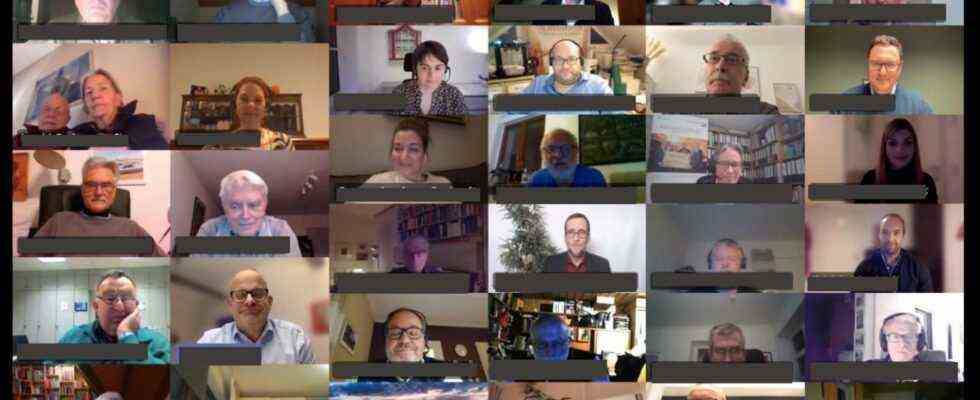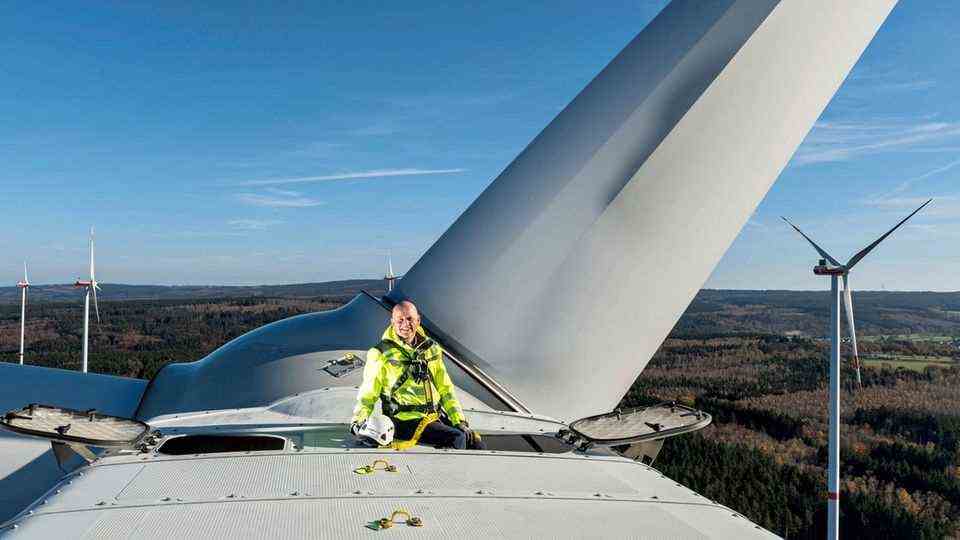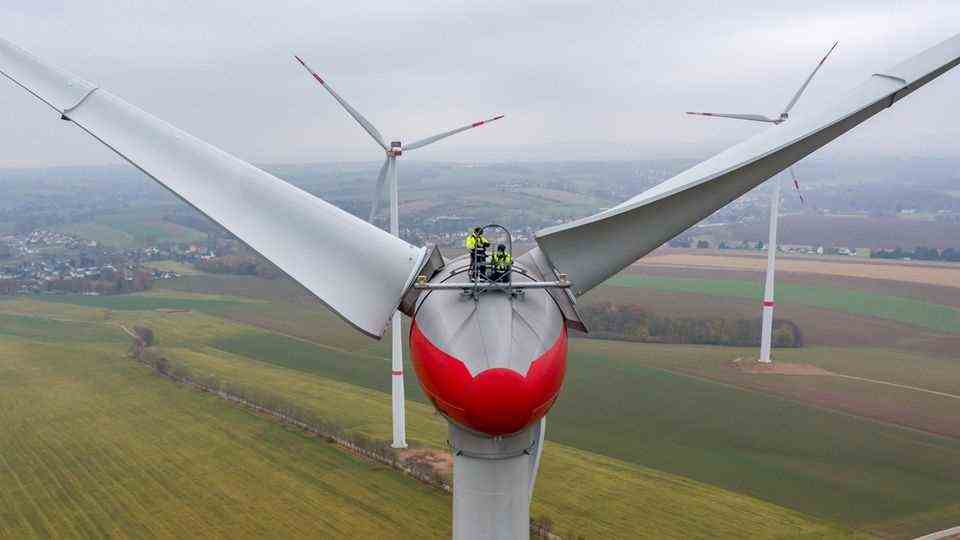Stern talk on the topic of wind power
Breaking new ground: storing wind power with electric cars
And this is what the stern-Talk about wind power looked like. Right in the middle of it all, editor-in-chief Anna-Beeke Gretemeier and editor-in-chief Florian Gless.
© Screenshot / stern
Will wind power save us? In line with the stern cover story “Seven wind turbines a day”, the editors Rolf-Herbert Peters and Martin Schlak discussed with experts and readers at the 4th stern-Talk.
Result after 90 minutes: Germany has all the prerequisites to achieve the Paris climate targets with an accelerated expansion of wind power. However, this not only requires political will, the right legal framework and good planning, but above all a fundamental willingness to break new ground in energy supply.
In the star, an expert advisory board had called for the accelerated expansion of wind power: Mathematically, the country needs seven new wind turbines – per day. A realistic goal or a pipe dream? Does this idea advance the country or is it overwhelming for us?
Three experts were available to answer questions from the stern readers
Prof. Volker Quaschning, expert for renewable energy at the Berlin University of Technology and Economics, Frank-Michael Uhle, climate protection manager at the Rhein-Hunsrück district, and Detlef Ahlborn, head of the technology department in the federal initiative “Reasonable Power”, which is responsible for the expansion of the Believes wind power to be a fundamental mistake.
“After a good start, the expansion of renewable energies in Germany has progressed very slowly over the past few years,” explained stern editor Rolf-Herbert Peters in an introductory manner. Wind power is the future for sustainable energy generation.
Detlef Ahlborn from the initiative “Reasoning Power” found it to be “not a sensible way to go”. “Our energy consumption is so high that we will never be able to produce this amount of energy with wind power. We have a quantity problem with wind turbines. ”In order to be able to set up enough systems, the entire area of Lower Saxony is required – this is not realistic. “The so-called energy turnaround has long since failed”, Ahlborn later concluded, “based on the laws of economics, physics and mathematics.” He advocates focusing on nuclear fusion.
Admittedly, a technology that could only be available in decades – if at all. For his statement, Ahlborn had to put up with clear criticism from many readers: “You are always only against it,” said one discussant, “but you do not offer a realistic alternative. We’re running out of time. “
Indeed: “If we want to achieve the goals of the Paris Climate Agreement, we have to act now,” explained Volker Quaschning. The space required for the wind power plants is nowhere near as high as Detlef Ahlborn said. Only two percent of the area of Germany is necessary. The location question can be solved. It is true that some systems are also built in or on forests, but compared to the consequences of climate change, limited interventions in forests are a far lesser evil. The consequences for nature, for example for birds or bats, could also be minimized.
“What use is an energy source to us that cannot be relied on, because it no longer produces any energy when there is no wind?” The question of one discussant had also been raised in several letters to the editor. Quaschning’s answer: “It is of course important not only to think about expanding the wind power plants, but also about expanding the corresponding storage technology.”
Decentralized storage is the future, says Quaschning
In addition to known technologies such as pumped storage plants, for example, new approaches could also be used for this purpose: For example, electric cars, which, while connected to an intelligent power grid, can be used very well as short-term intermediate storage without impairing driving comfort. A single Tesla car battery can store as much electricity as an average single-family house consumes in a week. Quaschning continues: “With the exception of a few weeks a year when we would have to buy electricity from abroad, we could already supply ourselves well with such innovative storage concepts.”
Wind power works and can bring prosperity to an entire region – this was made clear by Frank-Michael Uhle, Climate Manager in the Rhein-Hunsrück district. The region has developed into a model region that attracts interested visitors from all over the world. The leasing of the wind power locations is very lucrative for municipalities in the Rhein-Hunsrück district. The income – which has now totaled more than 50 million euros – would support energy-saving projects for the population, for example. On the one hand, wind power leads to prosperity and, on the other hand, helps to use less and less energy. In general, it is possible in Germany to generate three times more energy from wind power than is required. The technology is available, but there is a lack of legal framework. His circle proves that much more is possible than was thought years ago. “If you take the population with you and show people that everyone can benefit from the systems, then we will also create acceptance for larger wind power projects.”
Researcher Volker Quaschning’s assessment: “It is worth expanding our knowledge. If we are technology leaders, then we can secure our prosperity in a sustainable way in the long term. We should not fight the new, but welcome it. “
And the stern readers? The majority of them drew a positive conclusion: “I have seldom learned as much in 90 minutes as I did with the stern-Talk”, summed up participant Eberhard Gebauer from Düsseldorf.



